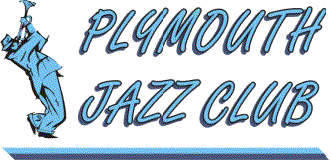TRADITIONAL(TRAD)
- Music associated with the early part of the
century. Usually featuring trumpet/trombone front line
with clarinet, these days best known as the music from
New Orleans. Typical modern exponents Chris Barber,
Kenny Ball, Acker Bilk.
RHYTHM & BLUES/JUMP JIVE
- Music of the 1930's associated with Louis Jordan,
sometimes known as "Jump Jive" the precursor of rock 'n
roll, also can include boogie - woogie.
MAINSTREAM
- Music from the thirties and forties based around
show tunes of the last era. Melodic improvisations
typically led by saxophone or trumpet. Exponents being
Count Basie, Duke Ellington, Lester Young, then later
Louis Armstrong etc.
FRENCH GYPSY
(Or Jazz Manouch)
- Music mainly originating from French/
Belgian gypsy sources, associated with Django Rheinhardt
, Stephane Grappelli and the "Hot Club de France".
BE-BOP
- From New York, a style which revolutionised music
in the mid forties by introducing new concepts of
harmony and improvisation and, thereby, influenced a
whole new generation of musicians. Typically fast lines
written over existing musical sequences classic
exponents of which are Charlie "Bird" Parker, Dizzie
Gillespie Thelonius Monk etc.
WEST COAST
- A gentler, more melodic Californian offshoot of
the be-bop style. Typically alto sax or trumpet led
small groups with a "sweet" approach, long lines and
gentle rhythms. Exponents of this style being Stan Getz,
Dave Brubeck.
HARD-BOP
- An extension of the be-bop concept through the
fifties and sixties exemplified by the small group
featuring tenor sax and/or trumpet front line, playing
original material in the be-bop style. Famous for its
hard driving, swinging approach. Classic exponents early
Miles Davis, Art Blakey, Horace Silver and Sonny Rollins
etc.
POST-BOP
- Further extension of the Hard Bop concept which
increased harmonic and melodic experimentation, typical
of music through the sixties and seventies. Classic
exponents are early John Coltrane, Joe Henderson, Ronnie
Scott etc.
MODERN
- Generic term to cover all styles from be-bop
through to post-bop.
FREE JAZZ/IMPROVISATION -
- Music which has no formal harmonic or melodic
structure. Originated in New York in the early sixties,
popular in Europe through the seventies, now a marginal
influence, a music never featured at the Club. Please
note this music is rarely described as contemporary (see
below ) Exponents Ornette Coleman and Evan Parker.
CONTEMPORARY/ CROSSOVER
- Extension of the post-bop style through the
seventies and eighties typically combining John Coltrane
influenced saxophone playing with contemporary rhythms,
funk rock, soul etc. High energy music also associated
with rock-influenced jazz guitar. Exponents Mike Brecker,
Pat Metheny, Courtney Pine etc.

